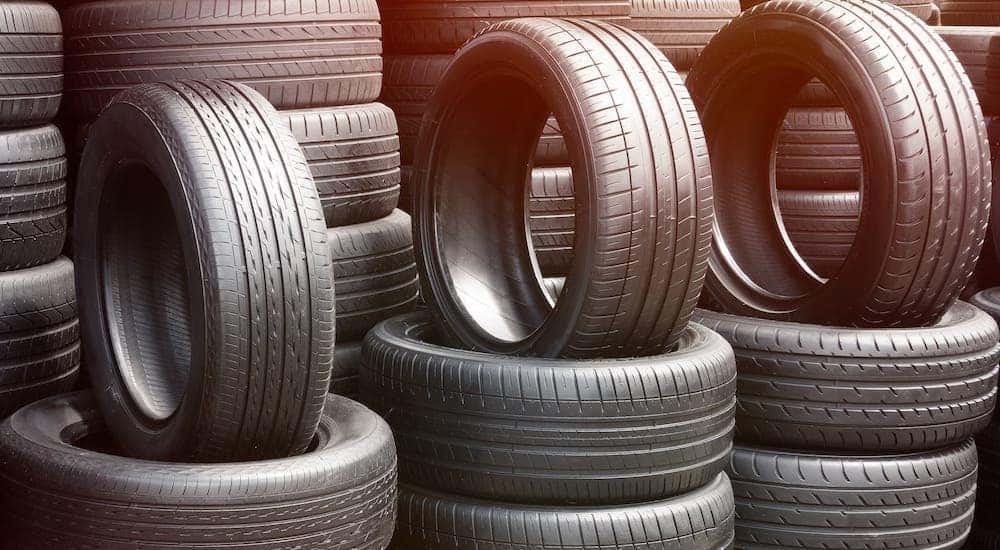Discover Exclusive Mopar Tire Service Specials in Morris Today
Discover Exclusive Mopar Tire Service Specials in Morris Today
Blog Article
Tire Service: Understanding Tire Stress Tracking Equipments
Comprehending Tire Stress Monitoring Equipments (TPMS) is a vital element of keeping optimal automobile performance and security when traveling. With improvements in automotive innovation, TPMS has come to be a conventional attribute in modern-day cars, offering real-time information on tire stress degrees. Digging deeper into the ins and outs of TPMS, one can reveal the different components that comprise this system and the significance of each in ensuring accurate tracking. From straight to indirect TPMS systems, the landscape of tire stress surveillance is varied, each with its unique set of advantages and factors to consider. Keep tuned to unravel the complexities of TPMS, from maintenance suggestions to the indisputable benefits of keeping your tires effectively blew up. morris tire and alignment.

Importance of TPMS
The importance of Tire Stress Surveillance Solutions (TPMS) hinges on their capability to improve vehicle security and efficiency with real-time surveillance of tire stress levels. Preserving the proper tire pressure is critical for making certain optimal handling, braking, and general security of a vehicle. TPMS offers chauffeurs with immediate feedback on any underinflated or overinflated tires, permitting for prompt adjustments to be made.
Components of TPMS
Sensors are usually situated in the tire shutoff stem or affixed to the wheel assembly, where they gauge tire stress and send information to the control component. Some progressed TPMS versions additionally show the real tire pressure readings for each tire, supplying chauffeurs with real-time information to make certain ideal tire performance and safety and security. By checking tire pressure continuously, TPMS aids avoid accidents, lowers tire wear, and enhances fuel performance, making it an important component for lorry safety and efficiency. tires morris il.
Kinds Of TPMS

On the various other hand, indirect TPMS counts on the car's wheel rate sensors to check tire pressure. This system identifies underinflation by contrasting the rotational speeds of the wheels. Indirect TPMS is less pricey than direct TPMS, as it utilizes existing sensing units within the vehicle.
While straight TPMS provides a lot more precise analyses, indirect TPMS is less complex in style and normally calls for much less upkeep. Both systems have their benefits and restrictions, and the selection in between them typically depends upon aspects such as price, lorry make, and individual choice. Recognizing the distinctions between these two types of description TPMS can help vehicle owners make educated choices regarding tire maintenance and safety and security.
TPMS Upkeep Tips
Reliable upkeep of TPMS is essential for ensuring optimal efficiency and security of your car. Frequently examining the TPMS sensors for any damage or deterioration is crucial. Make certain that the sensors are clean and free from debris that might conflict with their functioning. Additionally, it is a good idea to check the sensor batteries occasionally and replace them as required to assure accurate analyses. Conduct routine look at the tire pressure levels and contrast them with the TPMS readings to ensure they are regular. If there are any kind of disparities, rectify the system adhering to the producer's guidelines. In addition, throughout tire turning or substitute, make certain that the TPMS elements are handled meticulously Continue to avoid any prospective damages. Last but not least, if the TPMS cautioning light brightens on the dashboard, attend to the issue without delay by inspecting the tire stress and the general system for any kind of faults. By adhering to these maintenance suggestions, you can extend the life-span of your TPMS and boost the security of your driving experience.
Advantages of Correct Tire Stress
Maintaining correct tire pressure, as highlighted in TPMS Upkeep Tips, is vital for reaping the countless advantages linked with ideal tire stress levels. In addition, proper tire stress guarantees also tire wear, prolonging the life-span of the tires and promoting more secure driving problems. In verdict, the benefits of correct tire stress go past just tire longevity; they encompass boosted gas performance, boosted security, better vehicle efficiency, and overall driving comfort.
Final Thought
To conclude, understanding tire pressure tracking systems (TPMS) is critical for keeping optimal tire pressure and making sure automobile safety and security. By recognizing the importance of TPMS, being familiar with its components, understanding the different types offered, adhering to appropriate maintenance Bonuses ideas, and recognizing the advantages of keeping proper tire pressure, drivers can enhance their driving experience and prolong the life expectancy of their tires. Correct tire stress is key to efficient and secure vehicle procedure.

Report this page